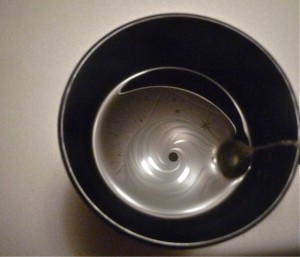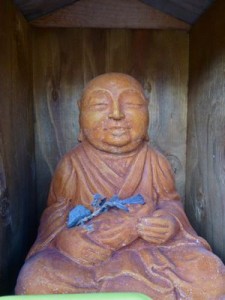Manage Your Energy Part 73: When Personal Growth Becomes Narcissism & Dealing with Self Hatred

“The moment a person becomes straightforward a straight way opens before him.” ~ Inayat Khan
Personal growth becomes narcissism when one engages pursuits of growth in ways that demand attention, without taking the steps that release oneself (and others) from the self-obsessed compulsions of what we consider to be our flaws.
Habitually indulging self hatred, for example, can be a fancy way to avoid self awareness. The intensity of feeling becomes like a sand trap one wallows in. Engaging the hatred can become a way to stay stuck, to avoid personal growth. This differs  from sinking in to the feeling to carefully observe and release our tendencies, structures of experience, motivations, and the less-familiar emotions underneath. Seeing behaviors in yourself that you don’t like and saying, “I’m bad! I hate myself,” without aiming to discover what exactly what you are actually doing and what you need reinforces the issues instead of resolving them. It’s like spinning around and around in an eddy.
from sinking in to the feeling to carefully observe and release our tendencies, structures of experience, motivations, and the less-familiar emotions underneath. Seeing behaviors in yourself that you don’t like and saying, “I’m bad! I hate myself,” without aiming to discover what exactly what you are actually doing and what you need reinforces the issues instead of resolving them. It’s like spinning around and around in an eddy.
Discovering self hate can be startling and arresting. Be very kind to yourself if you are in this place. This type of condition is very difficult, especially for those who do not have the advantages of Inner Work, who have not been exposed to techniques for self observation, forgiveness, exploration, and transformation, and do not have the support of qualified professionals.
Those who do have the advantage of such skills and support, who habitually stop at self hatred without moving into and then beyond it, may be indulging narcissistic or masochistic tendencies by wallowing in self hate. The narcissistic part shows up in rage at one’s self because one “shouldn’t be this way,” and is “better than this,” and in being too caught up in one’s own process to respond compassionately to others.
When we get lost in any negative emotion by reacting against it, we are turning away from noticing important aspects to what we are doing, inside and with others. We short-circuiting awareness and remain with the familiar feeling. Hatred or negativity then function as an inverted form of self love, feeding the ego self. This works the same way that an inferiority complex accompanies and underlies superiority.
Attempts to make oneself look good delay solutions and function as a fancy form of defense. Such attempts ultimately backfire. Avoidance makes things persist.
Genuine, healthy remorse of conscience supports healthy motivation and healing. This requires going THROUGH the self hate or negative emotion, without stopping at that depot. Remorse of conscience is not like guilt. Guilt is a sand trap. Remorse of conscience is a process of sensing into the heart and making a decision based on understanding and deeper values.
Accepting, embracing, and then relaxing underlying motivations slims them down and helps to integrate them, creating greater scope for genuine positive expression.
What steps help to release this type of compulsion?
- Quit judging and stay with feeling—but do not allow feeling to become stuck or static; keep going deeper.
- Identify the behaviors you use to avoid looking at your feelings and experience.
- If self hatred arises, welcome it gently and look more deeply. Do not give self hatred special importance.
- Stop identifying as ‘special-bad,’ as if your issues are more unforgivable and damning than those of anybody else.
- Identify and take responsibility for your underlying motivations. Notice what motivates behaviors that challenge intimacy or success.
- Admitting to the parts of you that want to stay stuck. Accept them—without endorsing them. Find positive ways to address the underlying fears.
- Remember that emotions are not excuses.
- Take direction from your true values and allow them to inform your choices. Aim to be true to them even while you are having negative emotions .
- Create straight-forward ways to meet healthy needs and desires, while accepting and releasing those that are not.
- Take responsibility for communicating your needs without being demanding or trying to make someone else responsible for them.
- Get help addressing the remnants of childhood issues with your parents, which will otherwise inform your behavior with intimates.
- Never suppress or ignore emotion—but do not allow it to run you. This means being aware of it, not it acting out.
- Practice compassion by bringing your spiritual practice fully into your body, right along with your difficult emotions. Allowing them to be less important without trying to get rid of them. If they intrude, acknowledge them or get to the bottom of them, then bring in love and change the subject inside.
What is the difference between having an emotion and being run by an emotion?
What makes the difference between whether talking about your emotions (with someone who is open to feeling) develops intimacy or becomes overly self-involved?





















